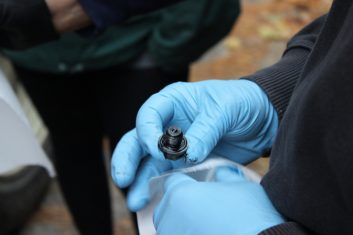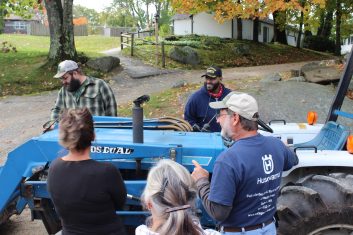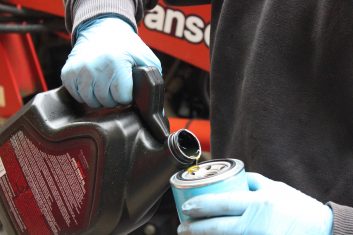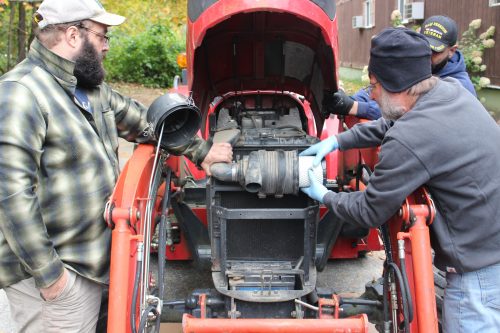NCAT has released a five-part video series called “Maintaining Your Tractor” on YouTube. This series walks viewers through the three main factors that keep a diesel engine running smoothly:
- clean air
- clean fuel
- lubrication
Farm and equipment educator Shane LaBrake joins NCAT Northeast Regional Director Andy Pressman (author of Equipment and Tools for Small-Scale Intensive Crop Production) at the Inn at East Hill Farm. They work on a Ford 1910 tractor from 1985. The 35-horsepower machine needed a new air filter, oil filter, and fuel filter.
Building Your Toolbox
The oil drain plug from a Branson tractor being cleaned off.
The first video in the series focuses on the tools necessary to maintain your tractor at home. Shane first reviews necessary safety measures folks should take. Then, he gets into a variety of tools including:
- socket wrenches,
- flat wrenches,
- filter wrenches,
- air compressors,
- grease guns, and
- drop pans.
Preparing to Do Maintenance
A group of students gets to know a Ford 1910 tractor, 35 horsepower, from 1985.
The second video covers the steps folks should take to get to know their machine. It covers checking the fan belt, oil, cooling system, and filters.
Changing the Air Filter
The Ford 1910 that Shane and Andy work on has a canister-type air filter, but the two also discuss different kind of air filters and how to replace them with new ones.
Changing the Oil and Oil Filter
Putting clean oil into the tractor was not a difficult job for Shane and Andy, but it did take a little thinking. Shane shares many tips and tricks in this video that can make the job easier.
Replacing the Fuel Filter
Before installing a new oil filter, apply a thin film of oil to the contact points to make a better seal.
In order to swap out the fuel filter on this Ford, Shane and Andy had to avoid spilling diesel fuel everywhere. This was a more complicated job, but Shane walks through the whole process. After swapping out the filter, the video covers how to bleed the air out of a diesel fuel line.
Budgeting for Maintenance
Throughout the video series, Shane and Andy discuss the cost of doing tractor maintenance at home. It isn’t cheap to buy tools, learn the skills, and budget the time to perform these services. However, it’s a lot cheaper than paying for dealer hauling fees and labor hours. Plus, the two explore ways around the costs, such as teaming up with neighbors, sharing tools, and working together.
If you ever have questions about your equipment and how to keep it running in the long term, reach out to our agriculture specialists at askanag@ncat.org, or by calling 800-346-9140.
The air filter on this Branson tractor can be easily pulled out and replaced.




